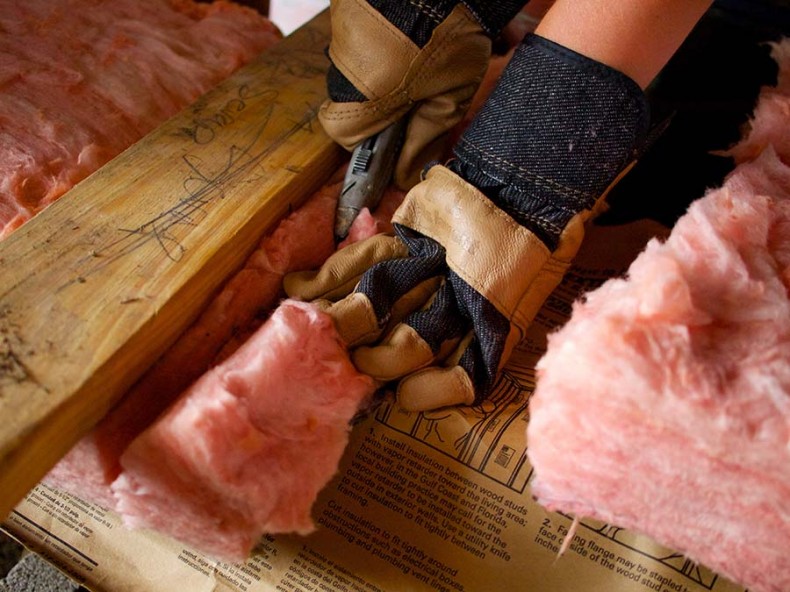Energy efficiency projects
Ensuring high-quality work from your contractor
By Patrick KeeganFiberglass batts perform better if measured and cut properly.
If you want to hire a contractor for energy efficiency projects, the good news is there are many performing high-quality work.
That being said, it’s smart to first figure out what you can do to ensure your contractors deliver the kind of quality you’ll be paying for.
The best assurance solution for most homeowners is to start with a home energy audit by a qualified, experienced energy auditor. Ask the auditor to specify products and quality standards for each recommended efficiency measure.
Using an auditor throughout your home energy upgrade will cost several hundred dollars, but you will know what work is truly needed, and you can prevent poor quality or incomplete work. Your electric co-op may offer a free or discounted audit by one of its energy advisors, or it may have a list of trusted energy auditors in your area. In some areas, there are contractors experienced in whole home energy efficiency upgrades who can perform the energy audit themselves and then do the work.
Once you have a description of what work needs to be done, start identifying contractors. Some co-ops offer financial incentives and/or know of contractors who have energy efficiency experience.
The energy auditor can help you with questions to ask potential contractors such as:
- Is the contractor licensed and insured in North Carolina or any other state in which you have a home that needs work? Do they have any additional training? For example, the Building Performance Institute (BPI) certifies contractors who have training in whole home energy efficiency improvements.
- For heating and cooling projects, how will the contractor decide what size equipment is needed? Will they inspect duct work and insulation throughout your home?
- For insulation and weatherization upgrades, what is your insulation level now? What should it be? Will the contractor find and seal any air leaks before installing the insulation?
- For all projects, who will actually be at your home doing the work — the person you are talking to? An installer employed by the same company? Or a sub-contractor?
Do plenty of research before fully engaging a contractor:
- Don’t take the first offer: Get at least two bids. The lowest quote might not necessarily be the best: If one quote is significantly lower than others, inquire closely about the reasons.
- Check their work: Ask for and check references, read online reviews and ask local experts about any experience they have with the contractor.
- Once you have chosen a contractor, make sure you and the contractor agree on the written description of the work to be performed, the expected timeframe for completion and the price. If the contractor insists on providing an estimate rather than a firm bid, discuss what might cause the final bill to be higher than quoted.
Some common areas of tension are also worth discussing:
- How often and when will the contractor communicate with you about the project’s status?
- How clean does the work area need to be at the end of each day?
- What is the daily work schedule?
It’s best not to pay the contractor until work is completed and inspected. You and the energy auditor should both inspect the work.
About the Author
This article was co-written by Patrick Keegan and Amy Wheeless of Collaborative Efficiency. Patrick Keegan writes on energy efficiency for the National Rural Electric Cooperative Association. For more information on ensuring quality energy efficiency work, visit: collaborativeefficiency.com/energytips.-
Share this story:




